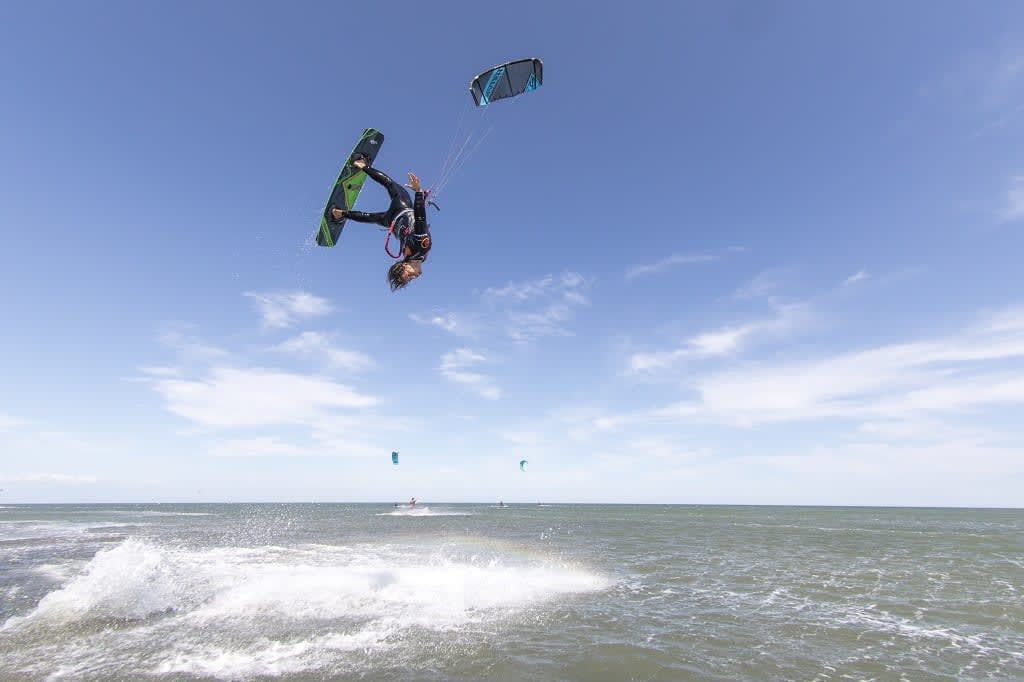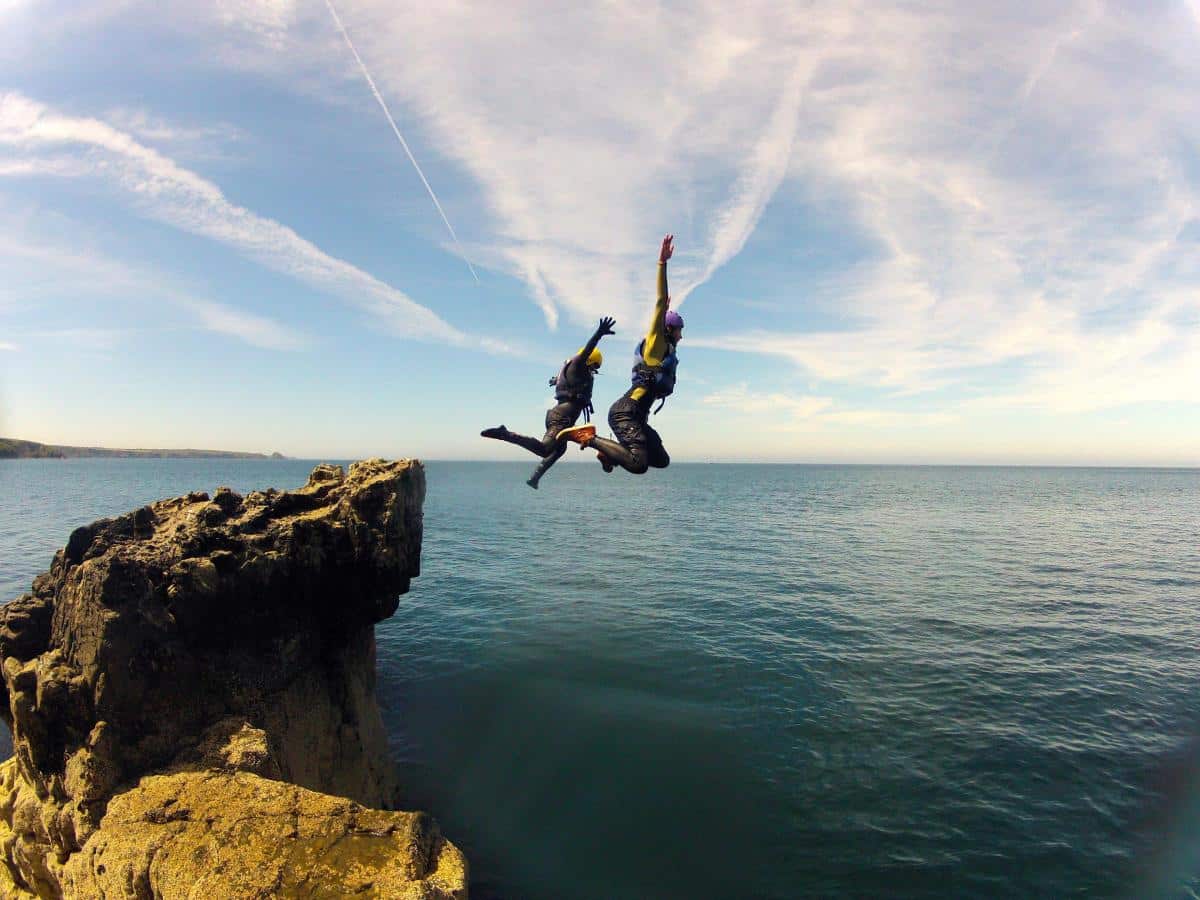Are You Really Insured for Risky Sports?

Whether you're a true extreme sports enthusiast, or just an amateur who wants to try an adrenaline-fuelled activity, don't forget to check your insurance and accident situation.
Outdoor and extreme sports activities always involve an element of risk, whatever your level of practice and the context in which you practice. So we thought it would be a good idea to take a look at the important subject of insurance.
We are talking about insurance because, as is often the case in today's society, several types of insurance are taken into account in the practice of sports activities, and in particular outdoor and extreme activities:
- Your private liability insurance: this is the insurance that covers damage that you may cause to third parties, outside a supervised practice. This insurance is usually part of your comprehensive home insurance package (insurance for your home, whether you own or rent).
Professional Liability Insurance
risks related to professional activities are not covered by your private liability. Therefore, when your professional activity requires it, a Professional Civil Liability is subscribed. This is the case for the vast majority of sports professionals, whether they are self-employed (mountain guides, parachute instructors) or whether they are associations or commercial companies (in this case, the insurance is taken out for the legal structure). This insurance covers damage caused to any person in the context of an activity supervised by the professional, but only in the event of the professional's identified liability (it is necessary to prove that the professional is at fault in order to claim compensation).
Insurance of persons
It is an insurance that covers insured individuals against personal injury, disability, illness etc. The best example of this is Social Security, which is an insurance of persons in the form of compulsory health insurance. In this case (outdoor sports), personal insurance essentially includes personal accident insurance, medical expenses and repatriation. It is often offered on trips or as part of sports licences. It applies only to the insured person and does not cover damage caused to others.
Specific insurance
There are many different types of insurance that cover only one particular item. The most common of these is your mortgage insurance.

It is good to know that all the activities you will find at Manawa are proposed by outdoor sport professionals, whether in France or abroad. As such, all of them have diplomas and specific insurance for professional civil liability. However, the professional's insurance will not cover you if you cannot prove their direct responsibility, so it is important to check your insurance situation before you take part in a "risky" sporting activity or if you are going abroad for example.
Indeed, more and more people practice so-called "risky" sports or leisure activities, whether as a beginner or as an experienced practitioner. These activities can lead to additional premiums and sometimes even to complete exclusions from cover, a situation that is often overlooked, and which can have significant consequences.
In France, insurance statistics show that the sports that cause the most victims (injuries or deaths) are primarily mountain sports, in particular mountaineering, ski touring and mountain hiking, but also water sports, in particular diving, canyoning and white water sports. Next come aerial disciplines, aerobatics, paragliding or gliding, followed by motor sports. In France, an estimated 15 million people practice these activities, either occasionally or regularly.

Let's get back to the main topic of this post. We have seen the main types of insurance that most of us have (sometimes without knowing it!). What about in the specific case of outdoor or extreme sports?
Private liability
Comprehensive home insurance policies or other private liability insurance policies almost always exclude outdoor and extreme sports. This could be financially difficult for the sportsperson, especially if the injured person suffers disabling after-effects. Like driving an uninsured car, practising uninsured outdoor or extreme sports can lead to situations where the practitioner has to "pay for his whole life" to compensate a third party.
This is why it is essential to take out specific insurance. Fortunately, this is often the case automatically when the activities are practised in an association, within the framework of a sports federation, or via a professional. If you practice solo, outside a structure, contact your insurer and check your situation. A one-off extension of cover may be requested to cover damage caused to third parties.

The specific case of Loan Insurance
Borrower's insurance is compulsory for all property loans. This insurance covers you in the event of death or disability resulting in a loss of income. In such cases, the loan insurance will pay off your bank loan in your place, allowing you to keep your home despite your loss of income (or, in the most serious cases, your death), and thus reassure your loved ones, particularly your children, if applicable.
Generally speaking, risky sports activities are always excluded from Loan Insurance: here are the classic exclusions - any sport in a professional capacity:
- any participation in betting or record attempts - extreme sports: adventure raid, bungee jumping, base jumping, canyoning, rafting, etc.
- motorbike racing, all motor sports - all snow or ice sports (except skating, curling, practice on marked alpine ski runs, cross-country skiing, monoskiing) - all combat sports and martial arts - motorboating, windsurfing more than 1 mile from the coast, yachting, scuba diving - mountaineering, mountain climbing and glacier crossing, any aerial sport including parachuting, ultralight, gliding, aerobatics, hang-gliding and paragliding, and the use of a tourist aircraft with or without driving - bullfighting, competitive cycling.

The "risk sport" exclusion buy-out may be a solution.
If a person starts practising a risky sporting activity included in the above list after signing the loan contract, he or she must inform the insurer. The cover initially provided will then be modified by an amendment to the contract which will have a significant impact on the insurance premium linked to this contract.
This can be restrictive, especially if the insured does not regularly practice this sport or even if he tries a new sport without knowing if he will continue in the future (a first parachute jump for example).
The exclusion buy-back is generally adapted to each person's sporting activity but also to their level of borrowing. Whether the policyholders are passionate about one or more so-called high-risk sports or are simply amateurs, whether they have a loan of €50,000 or €600,000, whether they wish to practice this activity for 1 day or 1 year, some companies buy back the exclusion that is present in the contract without having to terminate or change their current contract.
It is even possible to add daily allowances in the event of an injury that prevents the insured person from returning to work.
A wise practitioner is worth two, so check your situation and your insurance contracts before practicing... Link from our insurance partner: https: //www.verspieren.com